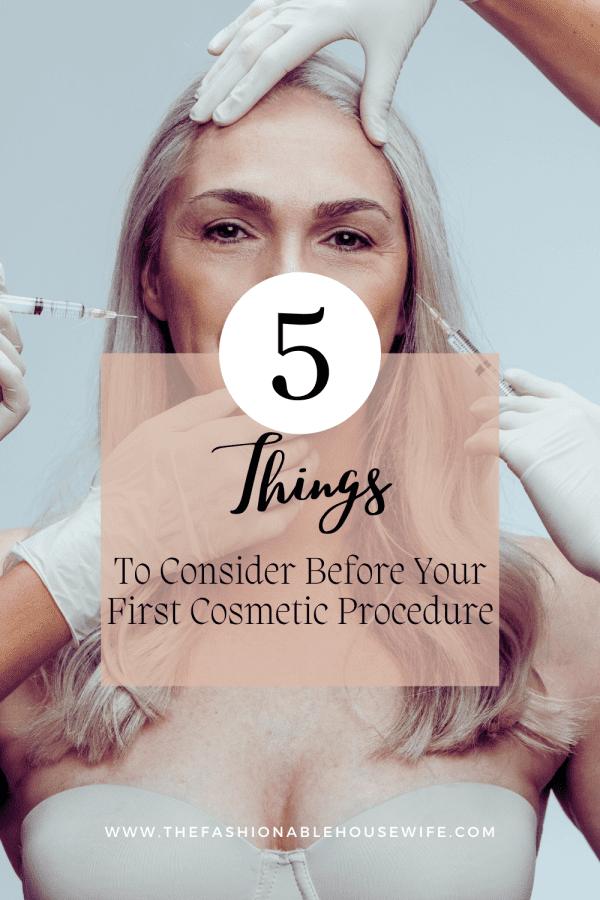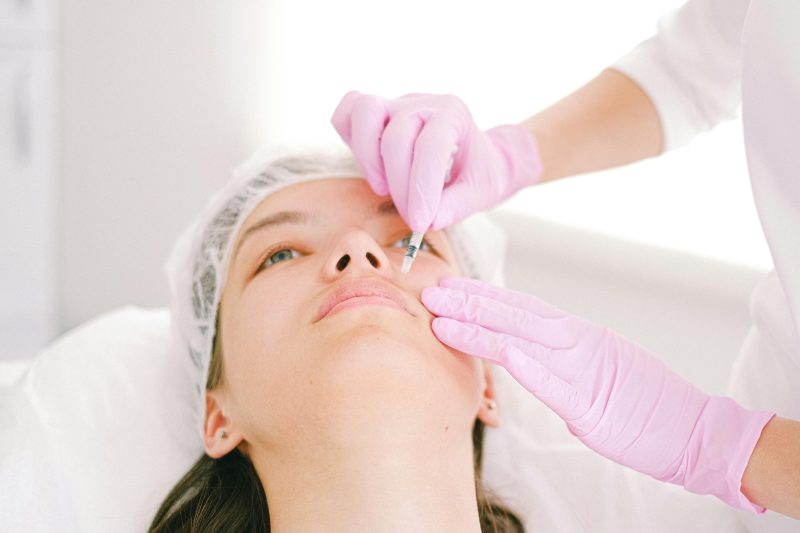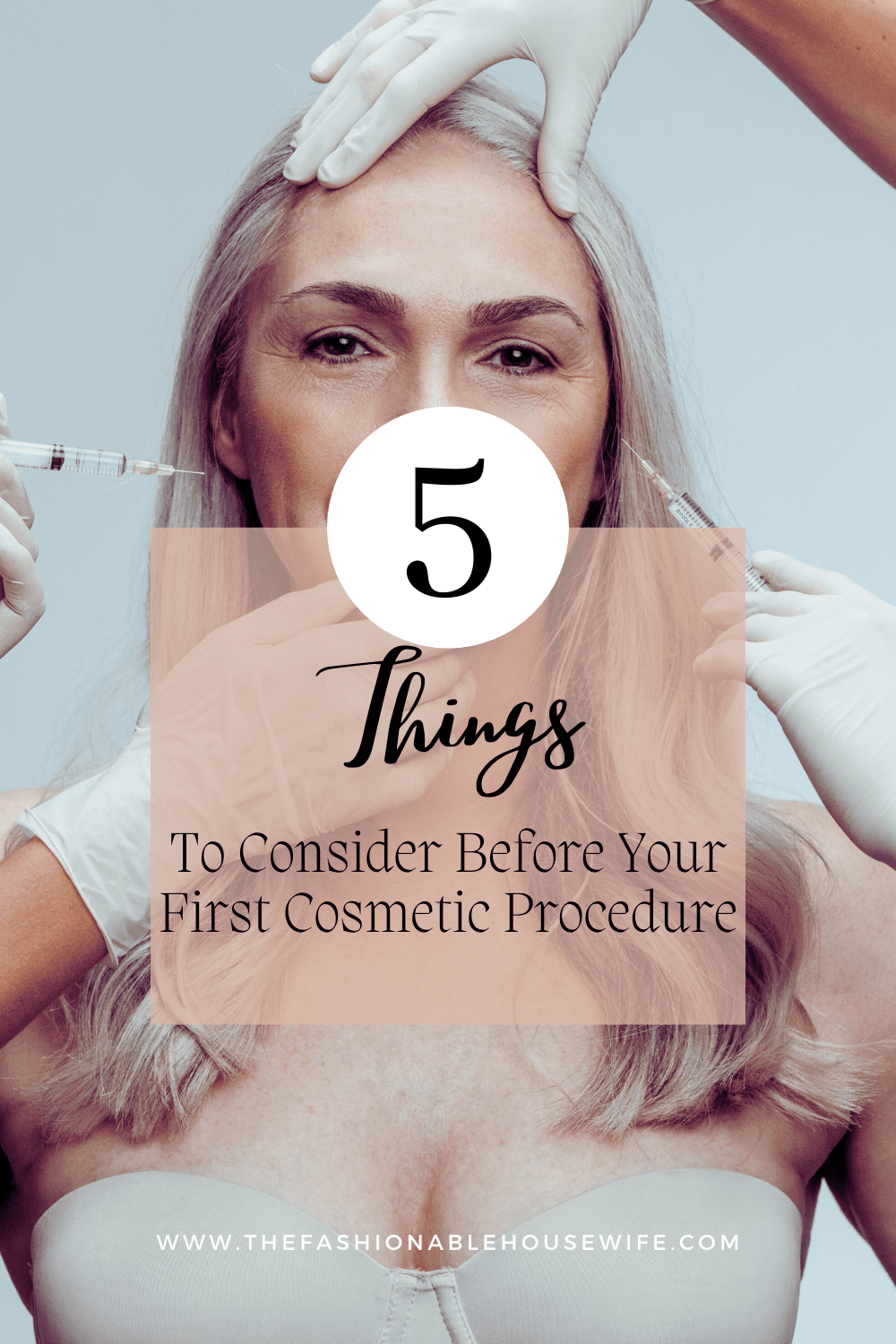5 Things to Consider Before Your First Cosmetic Procedure

Many people consider gentle changes that help appearance match inner confidence, and modern cosmetic medicine now delivers safe options worldwide. But hold on! Before you run and get your first cosmetic procedure, you need to read this!
Selecting an initial procedure requires thoughtful planning because health, budget, and recovery time must align smoothly with long-term happiness goals. Reliable information aids clear choices, safeguards comfort, and helps results appear natural, balanced, and satisfying for many years. This article outlines five important considerations before your first cosmetic procedure so that you can have safe, predictable, and rewarding results!
1. Trusted Information
National medical boards, government health websites, and well-known hospital networks provide clear, current information on cosmetic surgery treatments, hazards, and success rates before users explore private ads. Independent peer-reviewed publications cover new treatments, evaluate instruments, and detail long-term outcomes, helping prospective patients avoid biased claims and appreciate expert surgeons’ actual boundaries. Accredited clinics usually present photo galleries, but careful viewers study lighting consistency, camera angles, and caption timelines to confirm genuine progress over altered marketing images. Board-certified surgeons offer detailed explanations instead of vague promises, and patients receive written summaries that mirror spoken points, preserving an exact record for later use alongside publicly available materials.
2. Health Status
A comprehensive health assessment by a primary care doctor before your first cosmetic procedure helps determines the current fitness status, identifies chronic diseases, and lists medications, which form an effective baseline for any conversation made in the future with cosmetic experts. Stable blood pressure, controlled blood sugar, and a healthy heart rhythm has a great impact on the success of surgery. Thus, doctors will order tests, change treatment, and verify the controlled readings before signing the clearance forms for the elective surgery. To improve safety, detailed allergy histories may guide anesthesia, antibiotic, and postoperative pain treatment. Some operating room drugs might have side effects. Surgeons may counsel patients to modify their behaviors, postpone surgery, and wait until better habits become permanent since smoking, drinking, and а poor diet affect wound healing.
3. Cost Planning
Accurate cost estimates encompass surgery costs, facility charges, anesthetic expenses, tests, clothing, and prescription drugs, minimizing surprises that might create worry during recovery when concern should be on comfort. Finance advisors at reputed clinics explain payment schedules, approved methods, and return restrictions, while independent banks provide medical loans with set periods that meet family budgets. While insurance rarely covers elective procedures, reconstructive work after accidents may qualify—so early conversations help clarify any potential coverage before you embark on your first cosmetic procedure. These discussions clarifies the documentation required for any partial reimbursement. Creating a dedicated savings plan that includes emergency funds for unexpected revisions or extra medication guards financial stability and prevents rushed future decisions that could compromise both health and final appearance.

4. Recovery Time
Another important thing to consider before your first cosmetic procedure is the recovery time. A clear recovery timeline assists patients plan ahead for swelling, bruising, or soreness. This allows them to arrange support for home duties, childcare, or transport in advance. Most employers require official documents outlining time off. Allowing realistic downtime prevents early returns that could strain muscles, disrupt sutures, or slow skin healing. Limited lifting, elevated sleeping postures, and moderate walking after eyelid surgery prevent edema, preserve circulation, and protect sensitive features. When used at regular intervals, ice packs, light compression garments, and prescription lotions aid healing, and clinics give fast phone assistance to encourage patience throughout the return to activities.
5. Future Maintenance
Healthy habits, like а good nutrition plan, sun protection, and regular exercise, help maintain cosmetic results by preserving skin firmness and stable weight. Regular visits to the original surgeon enables early identification of minor changes, timely touch-ups, and valuable information on new products that could replace outdated care routines. Skin naturally ages with or without treatment. That’s why surgeons recommend annual check-ups to monitor elasticity, pigmentation, and volume. If changes occur, а subtle procedure can restore balance without altering natural contours. Easy things such as hats, cleansers, and moisturizing lotions supplement professional care, and these low-cost regimens save investment value by maintaining tissue healthy, relaxed, and open to later minor revisions.
Before Your First Cosmetic Procedure
Thoughtful preparation before your first cosmetic procedure is important because careful research, solid health, clear budget planning, realistic recovery scheduling, and ongoing maintenance together shape safe, natural, long-term outcomes. Each factor builds on the next, forming a solid framework that supports informed decisions, smooth experiences, and steady confidence long after swelling fades and final results settle. This balanced approach encourages collaboration among patients, families, and care teams—protecting health and supporting results that enhance features without future regrets.

